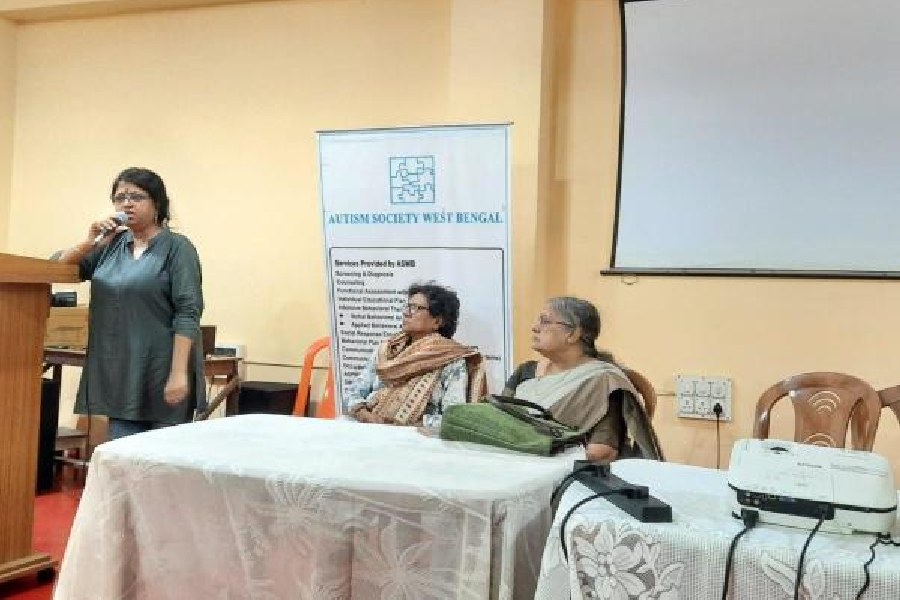People with disabilities are not asexual and one needs to understand this and give them space and time, said experts who work with individuals with disabilities.
Sexuality is often considered a “taboo topic” and kept under wraps by parents, the experts said.
The screening of a film about a teenager with autism and sexuality preceded the panel discussion. Button Hole, the 25-minute film, is about a teenager’s sexuality and how his single mother arranges for private space for him.
The film, directed by Mitul Dutta, was screened at Autism Society West Bengal on July 6 to an audience made up of mostly parents of children with autism and special educators.
“With the screening of this film, we want to start a conversation about sexuality among parents of individuals with disabilities. It is a major part of our existence. We often pretend that sexuality doesn’t exist among people with disabilities, but it does and we have to face it,” said Indrani Basu, director, Autism Society West Bengal and one of the panellists.
“The film is for people without disabilities to understand the needs of people with disabilities and how to deal with them.”
The film shows how a single mother is trying to help her son, who is being bullied at school.
Basu said parents tend to procrastinate when it comes to talking about sexuality. The issue needs to be addressed earlier than most parents do.
“One needs to talk to them about privacy, private parts, before and during puberty. It’s a conversation to have with both boys and girls. Conversation with girls usually stops at menstrual cycle and hygiene,” said Basu.
Mallika Banerjee, the founder of Pradip: Centre for Autism Management and one of the panellists, said it was the responsibility of parents to “create a private space” for their children.
“Despite the limitations of space, one has to explain to them the concept of privacy,” said Banerjee.
The film is based on the director’s experiences with a teenage relative, who she observed growing up.
“I made this film because I understood what a teenager with a disability and their families might be going through. There has to be more awareness about sexuality so that people know how to address it,” said Dutta.
Reena Sen, who has been working with individuals with disabilities for close to four decades, said any conversation about growing up and topics like sex, reproductive health and sexuality continues to remain taboo.
Sen was not present at the discussion and spoke to The Telegraph later.
“These continue to remain taboo topics even in the mainstream, barring a few schools or liberal-minded organisations that are trying to normalise these conversations. As a result, it leads to repression and regression. Like everybody else, people with disabilities have sexual needs which are worthy of respect and recognition and there is a need for discussion with parents and extended family members,” said Sen. “All conversations about disability must be with people with disabilities.”
Saswati Acharya Mohanty, a coordinator at the Indian Institute of Cerebral Palsy, said the need to initiate a conversation about sexuality is also to teach people with disabilities to protect themselves.
“Being sexually attracted to somebody or having feelings is a natural process and it should not be suppressed. They must know the difference between a safe and an unsafe touch because they are vulnerable to abuse, too,” she said.










